Memory Politics of the 1990s Wars in Serbia: Historical Revisionism and Challenges of Memory Activism
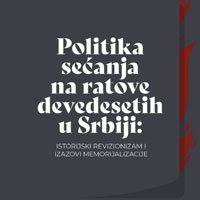
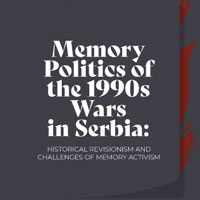 Since 2012, when the Serbian Progressive Party came to power, the wars of the 1990s became the focal point of the official memory politics and crucial for the political legitimacy of the SNS government. The populist discourse of the return of the national pride is central to state-sponsored memory work, arguing that the previous governments and international community coerced the Serbian nation to feel ashamed about its heroes and victims of the 1990s wars. The current regime uses the fact that the previous governments did not focus on the 1990s in their memory politics as a demarcation line and source of legitimacy. Because of the SNS and their political allies, the Serbian people are finally allowed and able, as the dominant narrative claims, to remember their heroes and victims with pride. The government builds its political legitimacy on its commitment to the industry of memory, which involves large-scale commemorations, usage of media technologies, cultural production and new ways of disseminating the dominant narratives.
Since 2012, when the Serbian Progressive Party came to power, the wars of the 1990s became the focal point of the official memory politics and crucial for the political legitimacy of the SNS government. The populist discourse of the return of the national pride is central to state-sponsored memory work, arguing that the previous governments and international community coerced the Serbian nation to feel ashamed about its heroes and victims of the 1990s wars. The current regime uses the fact that the previous governments did not focus on the 1990s in their memory politics as a demarcation line and source of legitimacy. Because of the SNS and their political allies, the Serbian people are finally allowed and able, as the dominant narrative claims, to remember their heroes and victims with pride. The government builds its political legitimacy on its commitment to the industry of memory, which involves large-scale commemorations, usage of media technologies, cultural production and new ways of disseminating the dominant narratives.






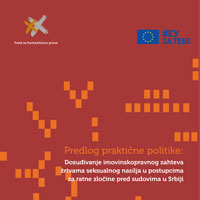
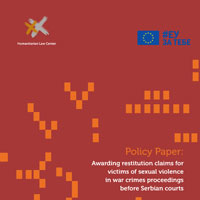 An associated action for restitution constitutes a claim for the compensation of damages, recovery of property or the annulment of a legal transaction arising from the commission of a criminal offence.
An associated action for restitution constitutes a claim for the compensation of damages, recovery of property or the annulment of a legal transaction arising from the commission of a criminal offence.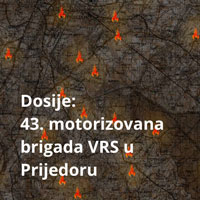
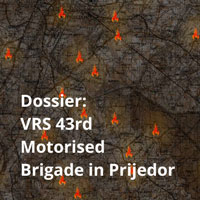 Between May and August 1992, units of the 1st Krajina Corps of the Army of the Republika Srpska (VRS), together with the police of the Republika Srpska, Territorial Defence Force (TO) units and various volunteer groups, carried out attacks on a large number villages in the municipality of Prijedor inhabited predominantly by Bosniaks and Croats.
Between May and August 1992, units of the 1st Krajina Corps of the Army of the Republika Srpska (VRS), together with the police of the Republika Srpska, Territorial Defence Force (TO) units and various volunteer groups, carried out attacks on a large number villages in the municipality of Prijedor inhabited predominantly by Bosniaks and Croats.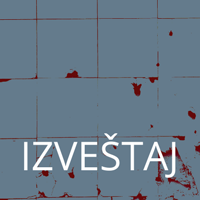
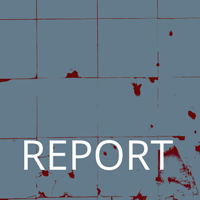 The HLC has monitored all war crimes trials conducted in the territory of Serbia in 2020, namely a total of 21 cases conducted before the War Crimes Departments of the Higher Court and/or the Court of Appeal in Belgrade.
The HLC has monitored all war crimes trials conducted in the territory of Serbia in 2020, namely a total of 21 cases conducted before the War Crimes Departments of the Higher Court and/or the Court of Appeal in Belgrade.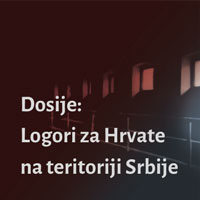
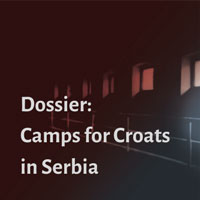 On November 18, 1991, after a three-month siege of the city, the Yugoslav Peoples’ Army (JNA) took over Vukovar with the assistance of the Serbian Territorial Defence Forces (TO) and military volunteer units. Upon occupying the city, a large number of members of the Croatian forces, as well as civilians, were captured by the JNA, including the wounded, women, minors and elderly people.
On November 18, 1991, after a three-month siege of the city, the Yugoslav Peoples’ Army (JNA) took over Vukovar with the assistance of the Serbian Territorial Defence Forces (TO) and military volunteer units. Upon occupying the city, a large number of members of the Croatian forces, as well as civilians, were captured by the JNA, including the wounded, women, minors and elderly people.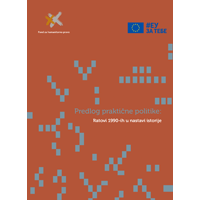
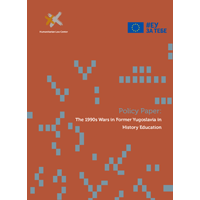
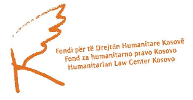

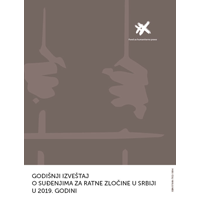
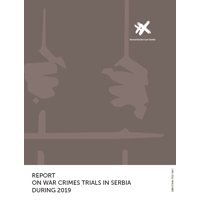 On the following
On the following 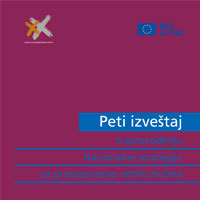
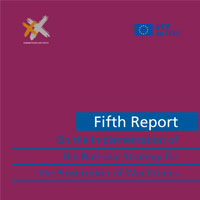 The Humanitarian Law Center (HLC) has been monitoring and providing support to war crimes trials ever since the first war crimes proceedings conducted in Serbia in 2002. The HLC is the only organization that has been continuously monitoring and analyzing war crimes trials in Serbia and informing the public at home and abroad about them. The HLC has been filing criminal complaints against suspected perpetrators with the Office of the War Crimes Prosecutors (OWCP), and it has also been identifying witnesses and victims and encouraging them to give evidence in court, and thus contribute to achieving justice for past crimes.
The Humanitarian Law Center (HLC) has been monitoring and providing support to war crimes trials ever since the first war crimes proceedings conducted in Serbia in 2002. The HLC is the only organization that has been continuously monitoring and analyzing war crimes trials in Serbia and informing the public at home and abroad about them. The HLC has been filing criminal complaints against suspected perpetrators with the Office of the War Crimes Prosecutors (OWCP), and it has also been identifying witnesses and victims and encouraging them to give evidence in court, and thus contribute to achieving justice for past crimes.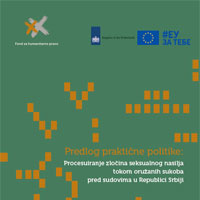
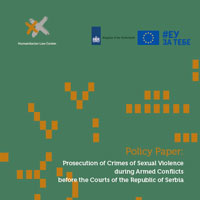 In 1991 and 1992, while conflict took place in Bosnia and Herzegovina (BiH), the international community was interested in allegations by the media and non-governmental organisations that sexual violence was frequently committed. As a result, certain domestic and international organisations, began investigating those media allegations, and the UN Security Council formed the Panel of Experts, with the aim of determining whether sexual violence was strategically used as a weapon of war. The report submitted by the Panel of Experts influenced the establishment of the ICTY in 1993 and the creation of a new legal framework dealing with sexual violence.
In 1991 and 1992, while conflict took place in Bosnia and Herzegovina (BiH), the international community was interested in allegations by the media and non-governmental organisations that sexual violence was frequently committed. As a result, certain domestic and international organisations, began investigating those media allegations, and the UN Security Council formed the Panel of Experts, with the aim of determining whether sexual violence was strategically used as a weapon of war. The report submitted by the Panel of Experts influenced the establishment of the ICTY in 1993 and the creation of a new legal framework dealing with sexual violence.